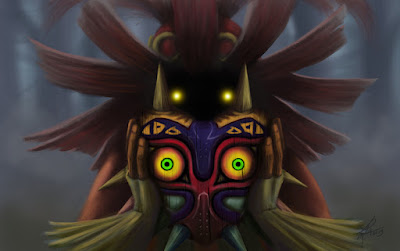Superhero comics have flirted with Conspiracies for years, with characters like Sasquatch and Wendigo being straight out of cryptozoology and plenty of hidden alien research and secret government departments galore. Pretty much no established setting doesn't have some kind of secret society, be it The Court of Owls or Secret Empire, and whilst these aren't always the best handled, they have become major aspects of the genre. Anyway, I'm kind of just hedging around things to fill out word length, what I really want to talk about is the Secret Space Program. If you haven't come across the SSP, then you are in for one hell of a ride, as it combines elements of Roswell, Stargate, Starship Troopers, Warhammer 40,000 and even deals a lot with Tom Delonge of Blink 182. There's moon Nazis, cloned super soldiers, hyperspace travel and alien sex orgies, like some glorious bricolage of entertaining nonsense and the best roleplaying game the 1990s never spawned. Of course, this turns out to just be a lead-in for Q-Anon and similar diet-Nazi shit best avoided, but while you stay in the SSP space, there is a lot of fun to be had.
The obvious question is, of course, can I game the Secret Space Program somehow? Superhuman soldiers cloned from great heroes of history fighting Nazis on the moon is so bang-on my Venn diagram of interests that I can't not at least try, right? Chopping the Alt-Right shit out is actually pretty easy, once you know what to look for, and even reversing that is more than possible, just add in plenty of women, queer people and people of colour as you go. Instead of a SSP soldier being the "clone" of Beowulf or King Arthur, try Fred Hampton or Harriet Tubman, for example. A bunch of black soldiers in power armour raiding a Nazi space station would be a hell of a thing and I'm already just brimming with other ideas that actively resist the conspiracy mindset. One of the best ways we can combat this recruitment tool for the Alt-Right is to drag it into the open and look at it for the nonsense it is. So get out there and put some of this shit in your games. Alien stargates to lost human colonies and flying u-boats? How can you not want to play around with that?







































